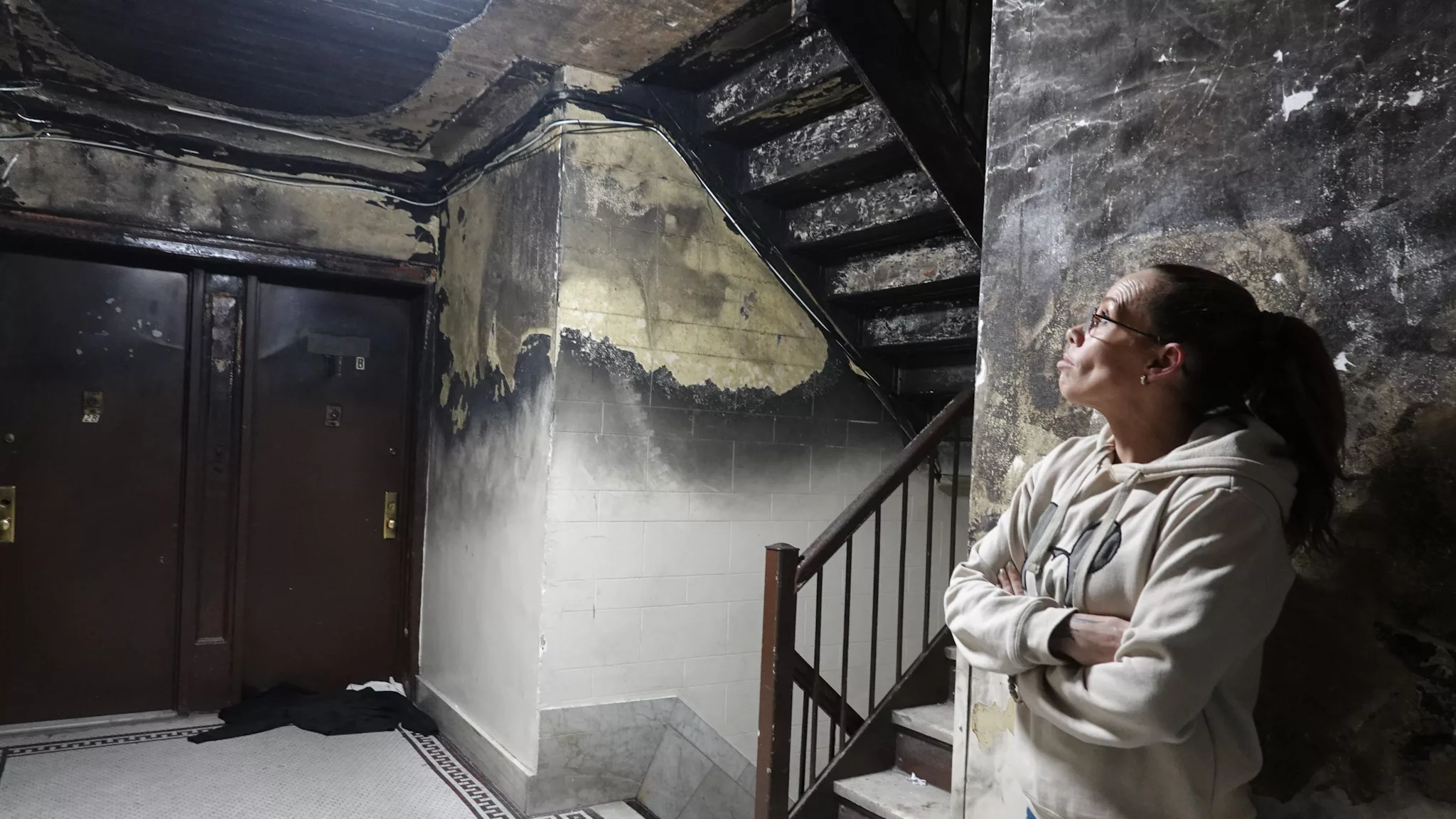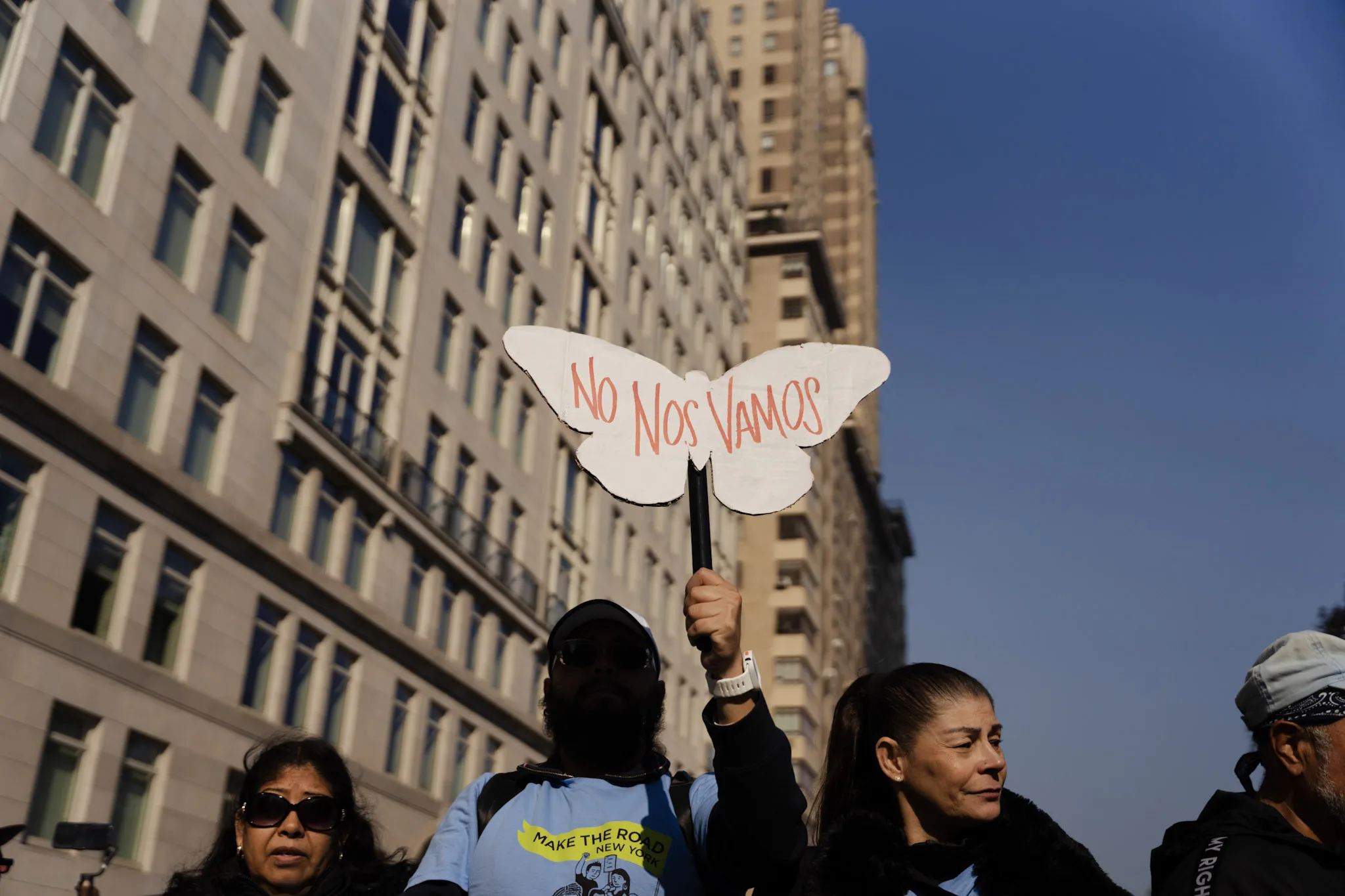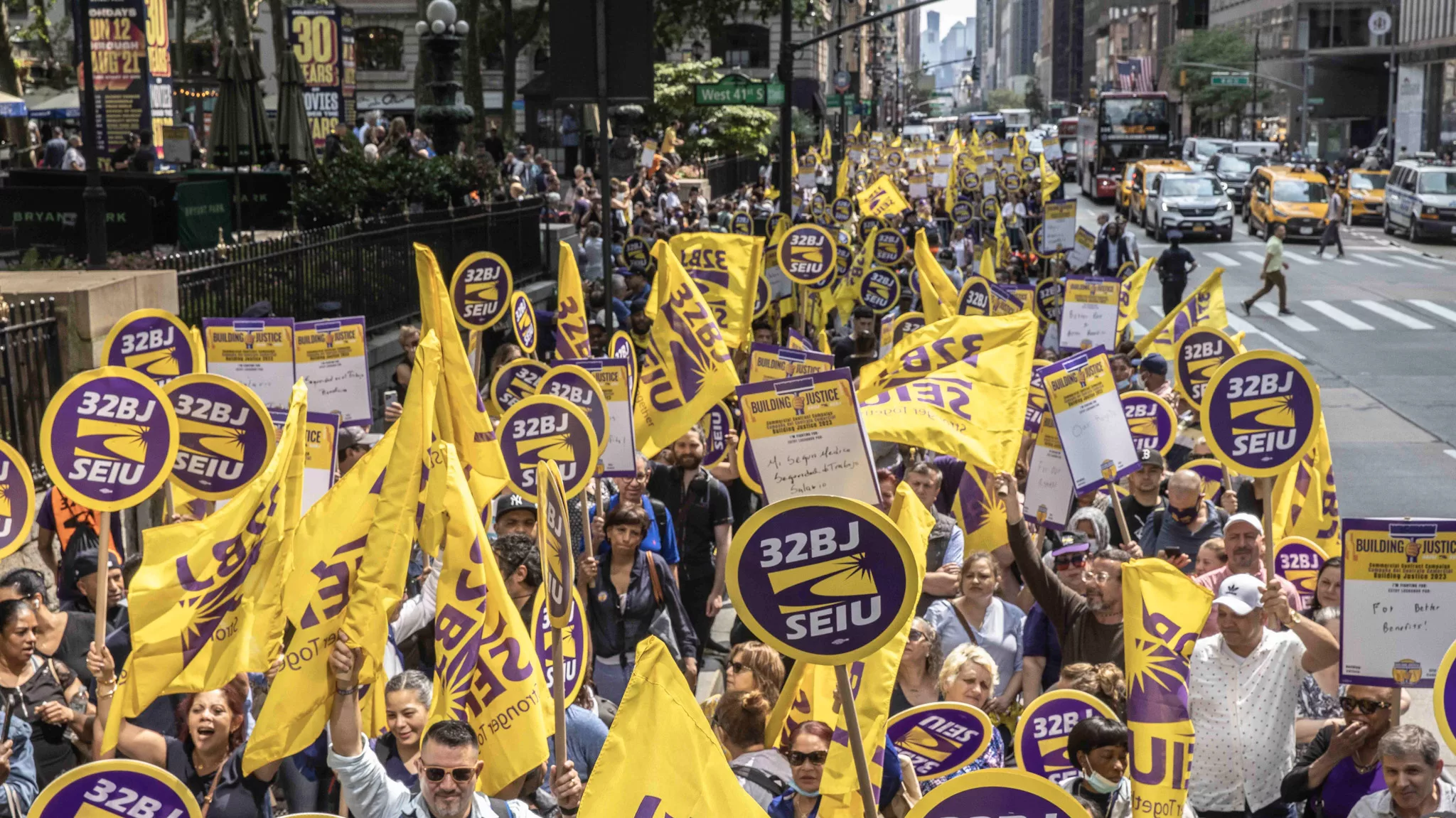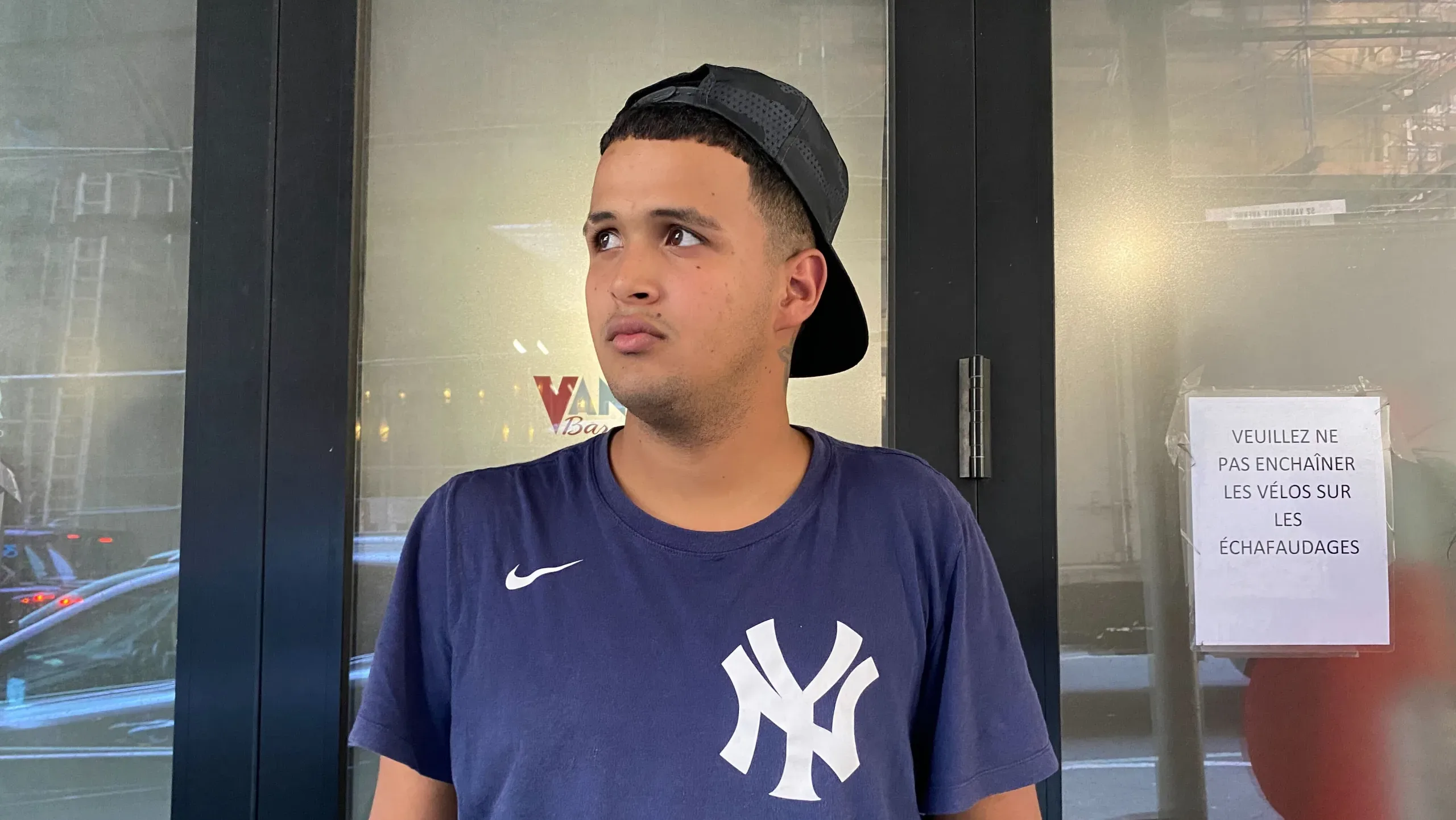On a cold December afternoon, Jaclyn Salvatore’s face appears dimly lit by the yellow lights from her Christmas tree. At 4:30 p.m., the day has already started getting dark, and the light above her has been broken for months.
She is accustomed to the darkness, as well as the sound of dripping water from her leaky bathroom faucet that persists 24 hours a day, non-stop. Around the corner, she smells the hint of burning smoke from a fire that entered her hallway closet months ago on Oct. 13. Building maintenance has still not made significant repairs.
The living conditions are not ideal, but they’re good enough to keep Salvatore’s two 14-year-old sons, who are diagnosed with attention deficit disorder, warm and comfortable in the freezing winter. However, Salvatore and her family may soon lose this apartment they’ve called home for 13 years.
Salvatore lives at 974 47th St. in Brooklyn, a building owned by Maimonides Medical Center. In October, Salvatore and her husband, who once worked as a security officer at Maimonides, received letters notifying them that the hospital was terminating their housing program and aimed to vacate the building used for employee housing by Dec. 31.
One of the letters from the hospital included contact information for tenants to inquire about their options, something that Salvatore’s husband did, but “was told that there were no other options,” Salvatore recounted to Documented.
Salvatore is not alone in her uncertainty. Other tenants, including breast cancer survivor Maria Colon, multiple current Maimonides workers, and a mother with a child who has heart disease, are also at risk of being displaced as the year comes to an end.
According to Chris Natoli, a tenant organizer at the Fifth Avenue Committee, who is supporting tenants in their fight to remain in their homes, there are dozens of tenants like Salvatore, including current or former Maimonides workers who immigrated from Latin America, the West Indies, and the Philippines.
Maimonides began acquiring apartment buildings in the 1980s, eventually owning eleven properties in close proximity to the hospital. These buildings were used to provide rent-stabilized housing for nurses, hospital staff, and existing tenants. In 2018, Maimonides sold eight of its buildings to Marc Blumenfrucht’s Iris Holdings Group for approximately $68 million. A temporary master lease was negotiated, covering hospital workers who would sublet from Maimonides. However, the hospital opted to scale back its housing program in 2018, and in turn, deny workers the opportunity to remain in their residences, said Natoli.
Natoli highlighted that Maimonides is presently involved in legal proceedings aiming to evict nearly 40 tenants, including retirees, who were previously lauded by the hospital as essential workers during the pandemic. In two Maimonides-owned buildings located at 974 47th St. and 968 47th St., an additional 30 to 40 Maimonides workers have been instructed to vacate their homes by the year’s end.
The cut made to the employee housing program is just the tip of the iceberg in a series of crises faced in recent years by Maimonides, the largest independent hospital in Brooklyn. According to Gothamist, the hospital incurred losses of nearly $130 million in operations last year, a slight decrease of about 10% from the $145 million reported the previous year.
In a statement to Documented, Tina Lee, a spokesperson for Maimonides, said the costs of maintaining and managing the properties dramatically increased recently, which left building conditions to become unmanageable and the hospital to determine that “this model was no longer financially sustainable.”
Lee pointed out that Maimonides currently pays approximately $86,632.01 per month to cover rent increases and delinquent rents. “At the highest point, Maimonides was paying $336,000 per month. This is not sustainable,” she said in the statement.
Salvatore expressed the distress shared by many tenants in her building after receiving the 90-day termination notice. “Everyone’s crying, and you’re hugging each other. It’s terrifying,” she said.
Colon, an operating room scheduler at Maimonides for over 20 years, and a current tenant in a Maimonides-owned building located at 968 47th St., was dismayed upon receiving the termination notice. “Why are you treating your workers like that?” she said. “Yeah, we were supposed to be essential workers. And now we’re like garbage?”
Colon said she resided at 5001 10th Ave. for a decade before Maimonides sold the building in 2018. Following the sale, she moved twice before settling into her current apartment in 2020. Throughout this period, she battled breast cancer and the side effects of radiation, all while continuing to work at the hospital even during the pandemic.
Sept. 22 marked Colon’s 20-year anniversary at Maimonides, to which she lamented, “I guess that was my gift, an eviction letter.”
On the eve of Thanksgiving, Salvatore and dozens of Maimonides workers, tenants, and local residents assembled outside the hospital in protest, condemning Maimonides’ move to evict seasoned hospital staff. The demonstrators chanted slogans such as “No leases, no peace!” and “Hell no, we won’t go!”
“I am hoping for justice from an organization whose moniker is ‘Passionate about Medicine, Compassionate about People,’ ” said Conrad Ramkissoon during the protest, a former nurse at Maimonides who is now in court facing eviction.
Meghan Walsh, a staff attorney at Legal Aid Society, said that their organization is representing 18 tenants across six buildings that were either previously owned or currently owned by Maimonides Hospital. These tenants are actively in housing court, facing pending eviction cases.
Walsh noted that many of these tenants, serving as essential workers throughout the pandemic, dedicated their lives to public service and Maimonides. They have lived in these units for decades, raising families, participating in the local community, attending church and sending their children to schools in the neighborhood, she said. “They are a part of the community and they’re now being asked to leave with nowhere to go.”
Lee said that all current full-time employees in two of the buildings — 968 and 974 47th St. — have been offered five months of rent relief. To date, five individuals have accepted the offer and the offer still is open to all who are interested, with the hospital not providing alternate housing.
Regarding tenants in buildings sold to Iris Holdings Group, Lee said that the hospital forgave months of unpaid rent. For current full-time employees in those sold buildings, the hospital provided alternative housing options. Additionally, all tenants were able to apply for housing through the new owner’s housing portal.
陈学理胜选凸显华人社区“右转”
Valerie Johnson, 73, worked as a patient care technician at Maimonides for 32 years and retired in 2018. For Johnson, who immigrated from Jamaica, and some other tenants, the eviction could force them to leave the communities they have called home for decades, she said. The hospital stopped accepting her rent starting in March when the deadline for her move-out date arrived. She attempted to explore available apartments, noting, “The market rent nowadays is horrible.” Johnson mentioned that she didn’t even qualify for some affordable housing options she had considered due to insufficient income.
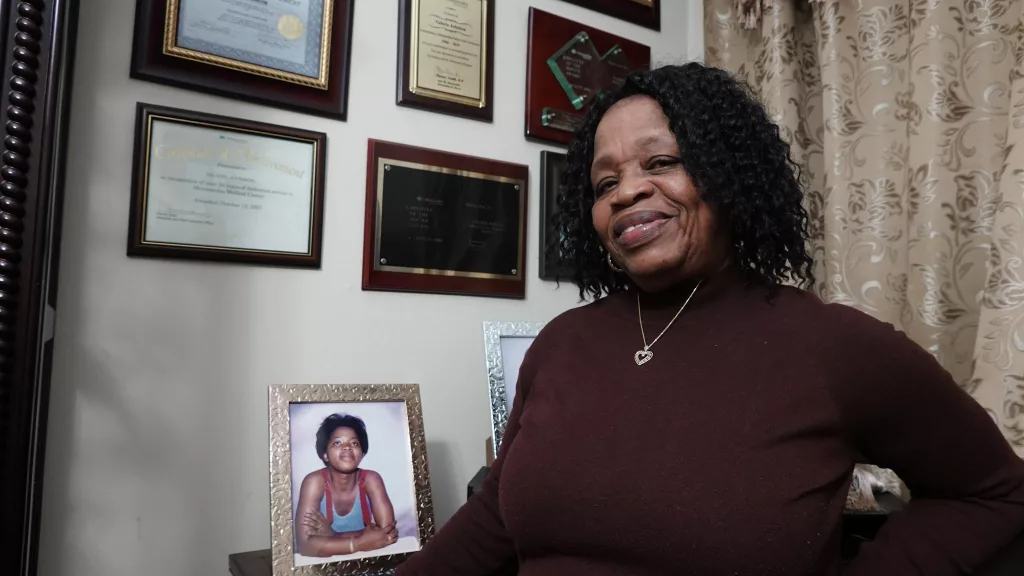
“I’m not saying we would not leave. But money is tight, even with two paychecks, things are tight,” said Salvatore with tears, highlighting that the current market rent is prohibitively high for many tenants in the building. “They [Maimonides] don’t seem to care about their employees’ personal fights and struggles. I don’t think that shows great character on the part of Maimonides.” The current rent for her two-bedroom apartment, accommodating a family of four, is $1,425. Salvatore searched in her area and found no comparable apartments.
“Maimonides’ attempt to sell their buildings to real estate firms is a highly unfair attempt to dislodge rent-stabilized tenants, many of whom are working-class families that are already struggling to get by,” said NYS Assemblymember Marcela Mitaynes in a statement. “Our office offers its full support to the tenants in their fight for a better deal from the Maimonides administration.” She also pledged assistance in connecting the tenants with needed resources and help such as accessing social services and aid.
Nowadays, Johnson often smiles as she gazes at the awards and certificates bestowed upon her by Maimonides. They serve as a reminder of her beloved job and the positive memories of working at the hospital. “They honored me when I was there. I was everything to them,” she paused for a second before continuing, “then in the end, this is what you get, the ‘thank you.’ ”
